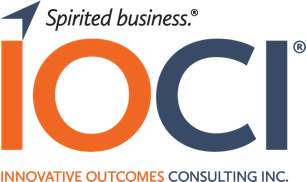
Being smart about AI
Leaders must develop their abilities to effectively leverage artificial intelligence (AI) to drive their business effectively. Leaders and their staff must understand the technology and how to work with it so they can identify ways in which the technology can help them add to the company’s performance and at the same time, identify gaps in the AI contribution so that organizationally everyone involved can help fill the gaps with their own unique human-centered capabilities.
With AI, it’s time to redefine what it means to be “smart”
“What is needed is a new definition of being smart, one that promotes higher levels of human thinking and emotional engagement,” writes Edward D. Hess, a professor at the University of Virginia’s Darden Graduate School of Business. “The new smart will be determined not by what or how you know but by the quality of your thinking, listening, relating, collaborating and learning. Quantity is replaced by quality.”(In the AI Age, “Being Smart” Will Mean Something Completely Different, Ed Hess, 2017, Harvard Business Review).
“Organizational leaders must anticipate now what AI will mean, both in opportunities and competitive threats…” Marialane Schultz, CEO of IOCI
AI is only as smart as how we influence it to learn
Humans will still be needed to monitor and quality control the AI systems. One common misconception about machine learning is that it will yield decisions that are perfect and unchallengeable. Like the cerebral Mr. Spock of “Star Trek” fame, computer systems are envisioned as yielding conclusions that are wholly logical and untainted by bias. At least for today’s machine-learning systems, this is not necessarily true, because these AI systems are programmed by human programmers and learn from human experts. Thus, any biases–conscious or unconscious–that those humans carry with them may transfer into the machine-learning systems they influence. For example, when Microsoft developed an AI system to learn from and communicate with Twitter users, the system quickly developed the same rude habits exhibited by the worst Twitter users (Maurer, 2017).
“Artificial intelligence is only as good as the information it has been given to learn,” says Elaine Orler, CEO of the research consultancy Talent Function. For example, she says, an AI system is unlikely to be able to reach key personnel decisions on its own. “Without conscious thought involved to ensure we’re not perpetuating bad behavior, there will still be a need for humans to make final hiring or promotion decisions” (Zielinksi, 2017).
Legal minefields abound. Rep. Emanuel Cleaver II, a Democrat from Missouri, in June 2017 launched an investigation into five online lending companies to see whether the computerized systems they use for loan-making decisions follow discriminatory practices. “People tend to develop things from their own way of thinking and their own world,” Cleaver said. “We would be wise to make certain that they don’t build into their systems exclusionary practices” (Lalita Clozel, 2017).
Leading in the era of AI
To thrive in an AI-augmented business world, employees should develop their abilities to effectively use AI tools to serve their company’s customers. Employees should understand the technology and how to work with it so they can identify ways in which the technology can help them add to the company’s performance–and at the same time, identify gaps in the AI’s contribution so that the employee can help fill them with his or her unique capabilities.
To learn more on how to thrive in an AI-augmented business world, read our white paper today, Leading in the Era of AI, What Organizational Leaders Must Know to Thrive and contact us if you need further coaching to navigate these changing times.
Marialane Schultz is the founder of IOCI. She helps individuals and organizations perform at their best, do meaningful work and be impactful through customized coaching and consulting engagements.

